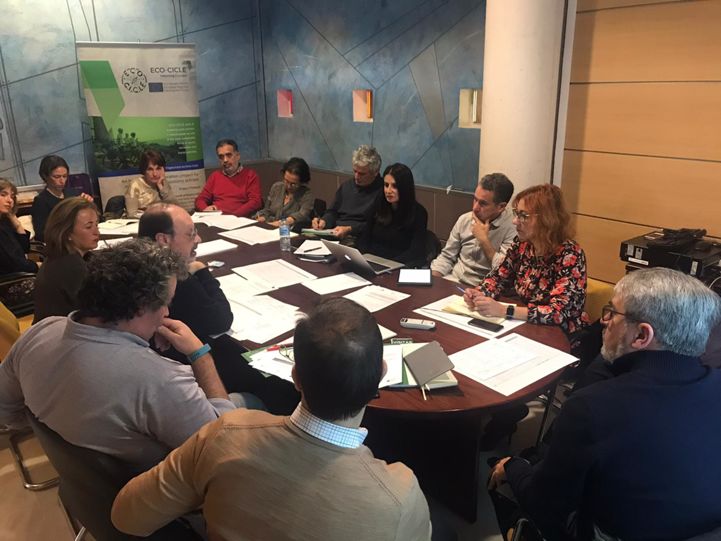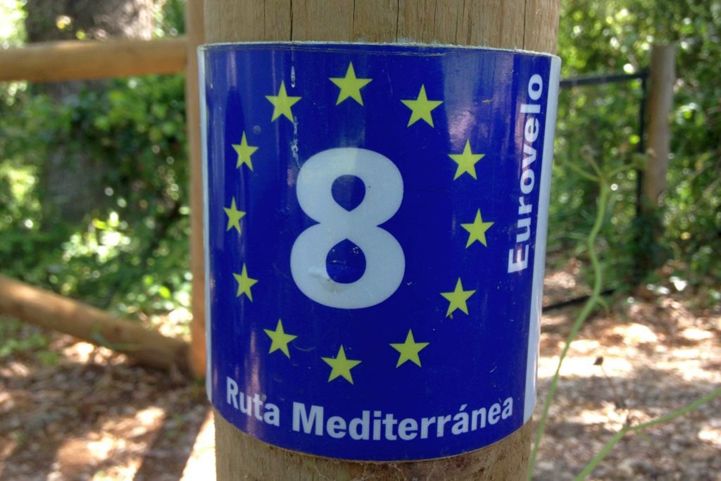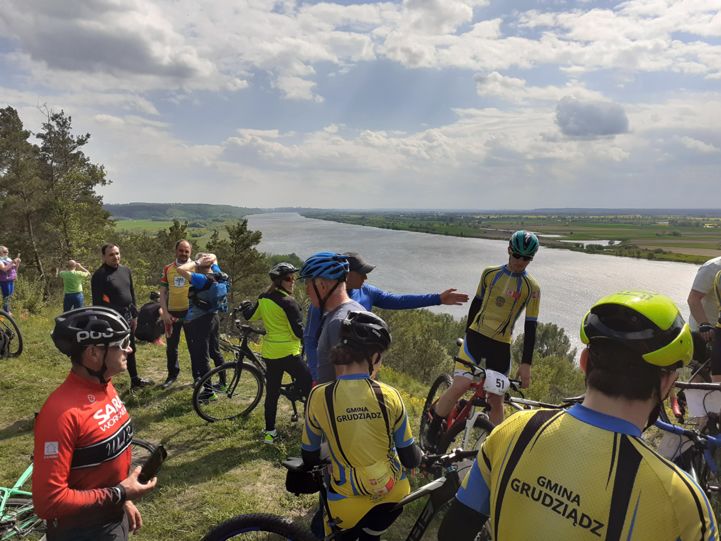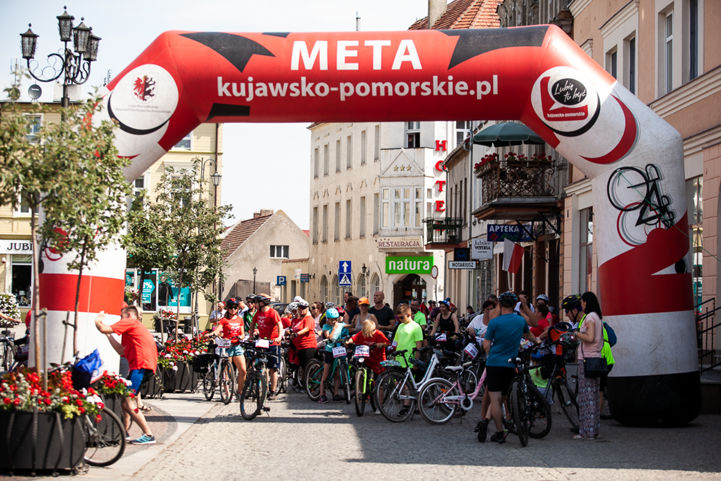ECO-CICLE project finishes, opening new prospects!
The aim of the ECO-CICLE project was to mobilise stakeholders around the topic of improving cycle tourism in natural areas. The various meetings, workshops and working groups that were organised in the frame of the project, as well as the international EuroVelo and Cycling Tourism Conference that hosted the ECO-CICLE Final Event, allowed to bring stakeholders together and boost policy changes and cycle route developments in the partnering regions.

Additionally, all project partners shared Best Practices related to infrastructure, funding, design and promotion of cycle routes and cycle tourism products, and prepared Action Plans setting out the actions identified as priorities to keep developing cycle tourism in their area after the end of the project.
The Best practices identified in the frame of the project were grouped thematically and presented in previous articles. You can read more about it on the following pages:
Achievements of Junta de Andalucia in Spain and Kujawsko-Pomorskie Voivodeship in Poland
In the Andalusian territory, ECO-CICLE has been the starting point for collaboration between several institutions, both from the Regional Government and outside. Many new stakeholders are now working on a daily basis to improve infrastructure and promote cycle tours and services in the region, according to the new strategies for cycle tourism promotion.

More specifically, in terms of ongoing infrastructure works, the ECO-CICLE project permitted to boost the developments of EuroVelo 1 – Atlantic Coast Route in the Province of Huelva and EuroVelo 8 – Mediterranean Route in the Province of Cádiz, including important refurbishment works worth around 30 million euros. The Regional Government is also working on a connection between the two routes, through the great beach landscapes of Doñana National and Natural Parks.
With regards to promotion planning, an important output of the project was the completion of several strategies for cycle tourism promotion at provincial level (in Huelva) and for the natural areas of Granada, Almería and Dehesas de Sierra Morena Biosphere Reserve. These works were connected to general strategies for cycle tourism promotion and for the design of the Dehesas de Sierra Morena Cycle Route.
Digital promotion was also tackled with the refurbishment of web tools. Cycle tourism was included in the Ventana del Visitante website and a new profile was created on Wikiloc to store the cycle tourism routes of the regions, now accessible at https://es.wikiloc.com/wikiloc/user.do?id=6316208.

For the Kujawsko-Pomorskie Region, joining the ECO-CICLE partnership and working towards the realisation of its main objectives contributed to a qualitative change in the local government’s policy management and in the process of planning and developing cycling infrastructure in the region. Collaboration with the ECO-CICLE project Partners, mutual learning and the sharing of good practices and experiences made it posible to trigger the necessary changes in the region.
Among the main activities conducted in the frame of the Project were the audit of the Vistula Cycle Route and the concept planning of EuroVelo 2 – Capitals Route and EuroVelo 9 – Baltic-Adriatic in the region. The Vistula Cycle Route has a total length of about 430 km and runs through the entire region on both sides of the Vistula River, connecting large and small towns along the route, while EuroVelo 2 and EuroVelo 9 follow the same route in Kujawsko-Pomorskie, with a length of 206 km. Project key stakeholders, representatives of local self-governments and cycling organisations were extensively involved in the elaboration process of the routes. Their design and audit were carried out with the support of the Dutch guidelines CROW and ECF’s expertise.

The results of these studies, as well as regional cycle tourism promotion policies, were presented to the stakeholders at a conference held at the Regional Development Agency of Toruń in 2020. The conference also included a bicycle rally along a section of the Vistula Cycle Route.
Additionally, the region is promoting sustainable mobility through the organisation of an annual dissemination campaign titled "Kujawsko-Pomorskie na Rowery" (Kujawsko-Pomorskie by Bike). The campaign involves a series of bicycle rallies across the region and promotes active leisure, natural and cultural heritage of the region and local cycling infrastructure. It is very popular among locals and visitors alike, and the rallies gather almost 1500 participants of all age groups every year.
What comes next?
Building up on the cooperation established during the project, all ECO-CICLE partners have prepared Action Plans to pave the way for further cycle route developments and identify clear targets. Hereafter is a summary of what’s in store for EuroVelo Routes as a result of the project!
- In Andalusia, further developments are planned for EuroVelo 1 – Atlantic Coast Route and EuroVelo 8 – Mediterranean Route, using funds from the new CicloSend_Sur project (INTERREG POCTEP Programme) which came out of ECO-CICLE meetings and planification strategies, and Integrated Territorial Investment (ITI) implementation in Cádiz. The Action Plan is available here.
- In Kujawsko-Pomorskie, new cycling infrastructure will be built in areas identified in the auditing process of EuroVelo 2 – Capitals Route and EuroVelo 9 – Baltic-Adriatic. Implementation works shall meet the national requirements for cycle routes and follow the guidelines of EuroVelo’s European Certification Standard (ECS). The Action Plan is available here.
- In Nova Gorica (Slovenia), EuroVelo 8 – Mediterranean Route will be improved in the Goriška region, including construction works. The Šempas - Tri Hiše – Ajševica section was identified as a priority axis in the region. The Action Plan is available here.
- In Basilicata (Italy), it is planned to strengthen the regional infrastructures for cycling, in particular along EuroVelo 7 – Sun Route going through the region. Promotion of the “Regional Plan for Cycling Mobility”, which will involve the identification of a regional network of cycle routes connecting with EuroVelo 7, is also underway. The Action Plan is available here.
- In Leipzig, there is no specific mention of EuroVelo in the Action Plan, but three priority actions were identified: connecting the Green Ring Leipzig Cycle Route with public transport, installing rest areas at the intersections with other cycle paths and re-routing problematic segments. The Action Plan is available here.

Authors: Florence Grégoire (ECF), Carolina Bielza Feliú (Junta de Andalucia) & Katarzyna Rzemykowska (Kujawsko-Pomorskie Voivodeship)